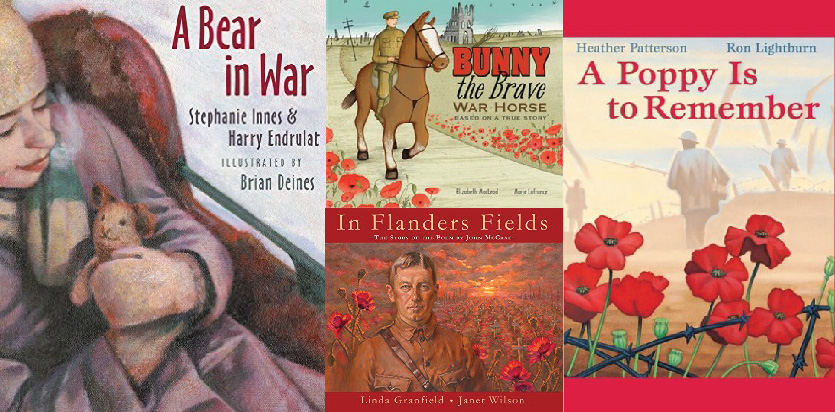At HomeAvid Reader
Teaching the importance of Remembrance Day with books
Canadians understand the significance of Remembrance Day, attending ceremonies, wearing a poppy, and hosting events at schools, but how much do Canadian children really understand the importance of Nov. 11.
Recognizing that parents sometimes need a helping hand, the MFRC-PEI has published a list of book recommendations parents can read to their children to explain the complexities of war and the importance of remembrance.
The books on the list include “Bunny the Brave War Horse” written by Elizabeth MacLeod. This storybook explains the story of the First World War through the true story of a police horse named Bunny, his riders, and his brothers.
To really give children a true understanding of remembrance the poppy is essential. This is why “A Poppy is to Remember” by Heather Patterson is also a recommended book. Accompanied by vivid illustrations this book explains In Flanders Field and the history of the poppy.
Another important book on the list is “In Flanders Field: The Story of the Poem by John McCrae”, by Linda Granfield. This book was released this year for the 100th anniversary of the poem.
To round off the list is the hearth wrenching story “A Bear in War” by Stephanie Innes and Harry Endrulat. The book introduces children to the story of Lawrence Browning Rogers and the teddy bear his daughter sent him overseas to keep him safe.
The list was compiled by military spouse and parent, Christine Manley. The books were chosen due to their availability in local libraries and online via Chapters.
“We wanted to highlight ones that were good for younger children, and that would be easy to obtain,” said Manley, who also assists the PEI MFRC with communications.
As a mother of two children, Manley was inspired to write the blog from her own experiences and realizing that explaining Remembrance Day to children is often a topic of conversation amongst parents.
“Remembrance Day is obviously important to recognize, not just for military families, but for all families. Children see the ceremony and can sense the sadness of it all, but they may not understand what, exactly, we are remembering. War is not just something that happened in another place and in another time: it is ongoing and continues to affect many families.
“Children should be aware of what a ‘veteran’ is and that we have them to thank for the many freedoms we enjoy today. And that veterans are not just older people, too. For military families, talking about Remembrance Day helps children become more aware of what their parents do. For children in non-military families, talking about Remembrance Day and war helps them to empathize with other children who may have a parent in the Armed Forces,” said Manley.
To learn more about the books on the list visit the PEI MFRC website.











